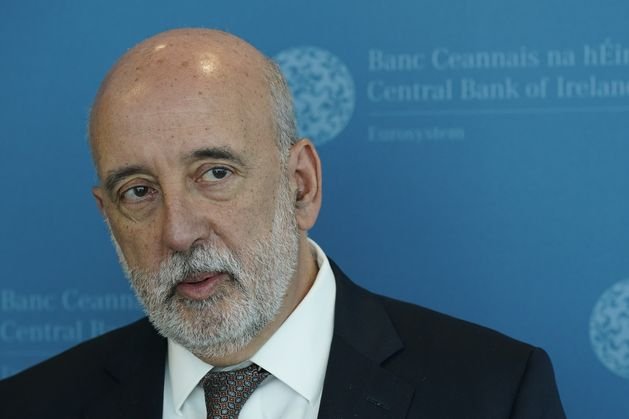So-called “war bonds”, which it is claimed are being used to fund the killing of innocent children and civilians in Gaza, are under intense scrutiny as a second Dáil motion was tabled to ban them.
The Central Bank faced sustained questioning from TDs and senators at the Oireachtas Finance Committee, but insisted it is legally required to approve the legal document, or prospectus, required for the sale of the bonds.
To be sold in the EU, bonds from non-EU countries must have their bond prospectus approved by an EU country.
Israel traditionally had its European bond prospectuses approved in the UK, but turned to the Central Bank in Ireland for authorisations after Brexit.
The Governor of the Central Bank, Gabriel Makhlouf, said it was “incorrect” to claim it can impose sanctions on the processing of the bonds on the basis of international court rulings.
He said it is up to international bodies including the UN and the EU to respond to breaches of international law by Israel, and to determine if sanctions are necessary.
“The Central Bank cannot impose sanctions on Israel – for example by refusing to approve the Israeli bond prospectus – in circumstances where the EU has not imposed any such sanctions itself,” he told TDs and senators.
The Central Bank said its approval for Israel trading bonds in the EU is due for renewal in September. “We will look extremely carefully at the facts that pertain at that time and will make a judgment on it,” said the Central Bank governor.
A number of TDs, including Sinn Féin’s Pearse Doherty and Cian O’Callaghan of the Social Democrats, said Ireland was a signatory to the Genocide Convention and this would enable the Central Bank to reject Israel’s bond prospectuses.
But Mr Makhlouf said the body is not bound by the Genocide Convention, but rather EU financial regulations, when deciding whether to facilitate the sale of bonds.
The current prospectus is due for renewal again in September. “If, when the state of Israel looks to renew its prospectus we will look extremely carefully at the facts that pertain at the time and we will make a judgment on it,” he said.
But this will be based on the requirements of the financial regulations. “The fact that the Taoiseach made the statement at the time, that is not going to change the judgement we come to,” he said, referring to Micheál Martin’s comments last month that Israel is committing genocide in Gaza.
Ahead of last night’s Dáil vote on a Bill enabling the Central Bank to stop facilitating Israeli bonds. Sinn Féin urged government TDs to “have a backbone”.
Deputy Doherty said: “We have to ensure the State has no hand, act or part in facilitating the sale of Israeli war bonds. These aren’t just financial instruments, this is the money that is raised that pays for the bombs that pays for the bullets that pays for the destruction of the lives of men, women and children across Palestine as we speak.”
Deputy O’Callaghan said while Independent TDs backing the Government had a free vote on the motion, Fianna Fáil and Fine Gael TDs had to vote along with the party whip. “That is utterly unjust and unfair,” he said. “If there was a free vote, this motion would pass and that would put the Central Bank under severe pressure to stop facilitating the sale of these bonds and would cut off a source of finance for the genocide that is taking place.”
Labour’s Conor Sheehan said: “It is not enough to just call this a genocide. We need to make Israel an international pariah.”

